Things to Come (also known in promotional material as H. G. Wells' Things to Come) is a 1936 British black-and-white science fiction film from United Artists, produced by Alexander Korda, directed by William Cameron Menzies, and written by H. G. Wells. The film stars Raymond Massey, Ralph Richardson, Cedric Hardwicke, Pearl Argyle, and Margaretta Scott.
| Things to Come | |
|---|---|
UK poster for the premiere run of the film | |
| Directed by | William Cameron Menzies |
| Produced by | Alexander Korda |
| Written by | H. G. Wells |
| Based on | The Shape of Things to Come 1933 novel by H. G. Wells |
| Starring | Raymond Massey Ralph Richardson Cedric Hardwicke Pearl Argyle Margaretta Scott |
| Music by | Arthur Bliss |
| Cinematography | Georges Périnal |
| Edited by | Charles Crichton Francis D. Lyon |
Production company | London Film Productions |
| Distributed by | United Artists |
Release date |
|
Running time | 108m 41s (see below) |
| Country | United Kingdom |
| Language | English |
| Budget | £260,000 |
The dialogue and plot were devised by H. G. Wells as "a new story" meant to display the "social and political forces and possibilities" that he had outlined in his 1933 story The Shape of Things to Come, a work he considered less a novel than a "discussion" in fictional form that presented itself as the notes of a 22nd-century diplomat. The film was also influenced by previous works, including his 1897 story "A Story of the Days to Come" and his 1931 work on society and economics, The Work, Wealth and Happiness of Mankind; speculating on the future had been a stock-in-trade for Wells ever since The Time Machine (1895). The cultural historian Christopher Frayling called Things to Come "a landmark in cinematic design".
Screenplay
In the city of Everytown in southern England, businessman John Cabal (Raymond Massey) cannot enjoy Christmas Day, 1940, with the news everywhere of possible war. His guest, Harding (Maurice Braddell), shares his worries, while another friend, the over-optimistic Pippa Passworthy (Edward Chapman), believes it will not come to pass, and if it does, it will accelerate technological progress. An aerial bombing raid on the city that night results in general mobilisation and then global war.
Cabal, piloting a biplane, shoots down an enemy aircraft dropping gas on the countryside. He lands and pulls the badly injured enemy pilot (John Clements) from the wreckage. As they dwell on the madness of this war, they have to put on their gas masks, as poison gas drifts in their direction. When a young girl runs towards them, the wounded pilot insists she take his mask, saying he is done for anyway. Cabal takes the girl to his aeroplane, pausing to leave the doomed man a revolver. The pilot dwells on the irony that he may have gassed the child's family and yet he has sacrificed his own life in order to save her. A gun shot is heard.
The war continues into the 1960s, long enough for the people of the world to have forgotten why they are fighting. Humanity enters a new Dark Age. Every city in the world is in ruins, and there is little technology left apart from weapons of war. In 1966 a biological weapon, called the "wandering sickness", is used by the enemy's greatly depleted air force in a final desperate bid for victory. Dr. Harding and his daughter struggle to find a cure, but with little equipment it is hopeless. The plague kills half of humanity and extinguishes the last vestiges of government.
By 1970, the warlord Rudolf, known as the "Boss" or "Chief" (Ralph Richardson), has risen to power and eradicated the sickness by killing the infected. He has started yet another war, this time against the "hill people of Floss Valley" to obtain coal and shale to render into oil so his biplanes can fly again.
On May Day 1970, a sleek new aeroplane lands outside of what remains of Everytown, startling the ragtag inhabitants who have not seen a new machine in decades. The pilot, John Cabal, emerges and proclaims that the last surviving band of "engineers and mechanics" have formed a civilisation of airmen called "Wings Over the World", based in Basra, Iraq. They have outlawed war and are rebuilding civilisation and consider the Boss and his band of warlords to be brigands. They offer them the opportunity to join them in rebuilding the world. The Boss immediately rejects the offer and takes Cabal prisoner, forcing him to work for mechanic Gordon, who struggles to keep the Boss's biplanes airworthy. Working together, they manage to repair one of them. Gordon takes it up for a test flight, but instead leaves to alert Cabal's friends.
Gigantic flying wing aircraft arrive over Everytown and saturate its ruins and population with sleeping gas globes. The Boss orders his biplanes to attack, but they prove ineffective. The people awaken shortly thereafter to find themselves under the control of Wings Over the World and the Boss dead from a fatal reaction to breathing the sleeping gas. Cabal observes, "Dead, and his old world dead with him ... and with a new world beginning ... And now for the rule of the Airmen and a new life for mankind".
A montage follows, showing decades of technological progress, beginning with Cabal explaining plans for global consolidation by Wings Over the World. By 2036, mankind lives in modern underground cities, including the new Everytown. Civilisation is at last devoted to peace and scientific progress.
All is not well, however. The sculptor Theotocopulos (Cedric Hardwicke) incites the populace to demand a "rest" from all the rush of progress, symbolised by the coming first manned flight around the Moon. The modern-day Luddites are opposed by Oswald Cabal, the head of the governing council and grandson of John Cabal. Oswald Cabal's daughter Catherine (Pearl Argyle) and Maurice Passworthy (Kenneth Villiers) insist on manning the capsule. When a mob later forms and rushes to destroy the space gun, used to propel the projectile toward the Moon, Cabal launches it ahead of schedule.
Later, after the projectile is just a tiny light in the immense night sky, Oswald Cabal delivers a stirring philosophical monologue about what is to come for mankind to his troubled and questioning friend, Raymond Passworthy (Chapman), the father of Maurice. He speaks passionately to progress and humanity's unending quest for knowledge and advancement as it journeys out into immensity of space to conquer the stars and beyond. He concludes with the rhetorical questions, "All the universe or nothingness? Which shall it be, Passworthy? Which shall it be? ..."
- Raymond Massey as John Cabal/Oswald Cabal
- Edward Chapman as Pippa Passworthy/Raymond Passworthy
- Ralph Richardson as Rudolf a.k.a. The Boss
- Margaretta Scott as Roxana Black/Rowena Cabal
- Cedric Hardwicke as Theotocopulos
- Maurice Braddell as Dr Edward Harding
- Sophie Stewart as Mrs Cabal
- Derrick De Marney as Richard Gordon
- Ann Todd as Mary Gordon
- Pearl Argyle as Catherine Cabal
- Kenneth Villiers as Maurice Passworthy
- Ivan Brandt as Morden Mitani
- Anne McLaren as Child (2036)
- Patricia Hilliard as Janet Gordon
- Charles Carson as Great-Grandfather (2036)
- Patrick Barr as World Transport official
- John Clements as Enemy pilot
- Anthony Holles as Simon Burton (*as Antony Holles)
- Allan Jeayes as Mr. Cabal (1940)
- Pickles Livingston as Horrie Passworthy
- Abraham Sofaer as Wadsky
- Cast notes
- All of Theotocopulos's scenes were originally shot with Ernest Thesiger in the role, but Wells found his performance to be unsatisfactory, so he was replaced with Cedric Hardwicke and the footage re-shot.
- Terry-Thomas, who would become known for his comic acting, has an uncredited appearance as an extra in the film, playing a "man of the future." It was his seventh film appearance.
Things to Come sets out a future history from 1940 to 2036. In the screenplay, or "treatment" that Wells published in 1935, before the film was released, the story ends in the year "A.D. 2054".
Wells is sometimes incorrectly assumed to have had a degree of control over the project that was unprecedented for a screenwriter, and personally supervised nearly every aspect of the film. Posters and the main title bill the film as "H. G. Wells' Things to Come", with "an Alexander Korda production" appearing in smaller type. In fact, Wells ultimately had no control over the finished product, with the result that many scenes, although shot, were either truncated or not included in the finished film. The rough-cut reputedly ran to 130 minutes; the version submitted to the British Board of Film Censors was 117m 13s; it was released as 108m 40s (later cut to 98m 06s) in the UK, and 96m 24s in the United States (see below for later versions). Wells's script (or "film treatment") and selected production notes were published in book form in 1935 and reprinted in 1940 and 1975. An academic edition annotated by Leon Stover was published in 2007. The script contains many scenes that were either never filmed or no longer exist, although the extant footage also includes scenes not in the published script (e.g. the Boss's victory banquet after the capture of the colliery).
Wells originally wanted the music to be recorded in advance, and have the film constructed around the music, but this was considered too radical and so the score, by Arthur Bliss, was fitted to the film afterwards in a more conventional way. A concert suite drawn from the film has remained popular; as of 2015, there are numerous recordings of it in print.
After filming had already begun, the Hungarian abstract artist and experimental filmmaker László Moholy-Nagy was commissioned to produce some of the effects sequences for the re-building of Everytown. Moholy-Nagy's approach was partly to treat it as an abstract light show, but only some 90 seconds of material was used, e.g. a protective-suited figure behind corrugated glass. In the autumn of 1975 a researcher found a further four sequences which had been discarded.
The art design in the film is by Vincent Korda, brother of the producer. The futuristic city of Everytown in the film is based on London: a facsimile of St Paul's Cathedral can be seen in the background.
This section needs expansion. You can help by adding to it. (March 2015) |
Things to Come was voted the ninth best British film of 1936.
It was the 16th most popular film at the British box office in 1935-36.
Science fiction historian Gary Westfahl has stated: "Things to Come qualifies as the first true masterpiece of science fiction cinema, and those who complain about its awkward pace and uninvolving characters are not understanding Wells's message, which is that the lives and actions of individuals are unimportant when compared to the progress and destiny of the entire human race".
During early development of what would become 2001: A Space Odyssey, Arthur C. Clarke had Stanley Kubrick watch Things to Come as an example of a grounded science fiction film; Kubrick, however, disliked it. After seeing 2001, Frederik Pohl of Galaxy Science Fiction complained in a 1968 editorial that Things to Come was the most recent serious film with a large budget, good actors, and a science fiction screenwriter.
The film is recognised by American Film Institute in these lists:
- 2005: AFI's 100 Years of Film Scores – Nominated
The rough-cut of the film was 130 minutes in length, while the version submitted for classification by the British Board of Film Censors (BBFC) was 117m 13s. By the time of the 21 February 1936 UK premiere and initial release, this had been reduced to 108m 41s, while the American print premiered on 18 April 1936 was further cut to 96m 31s. By late 1936, a 98m 07s print was in circulation in the UK, and a 76m 07s print was resubmitted for classification by the BBFC and was passed – after further cuts – at 72m 13s for reissue in 1943. The 96m 31s American print was cut down to 93m 19s by the removal of three sections of footage for a reissue by British Lion Films in 1948, and subsequently to 92m 44s by the removal of one more segment. A continuity script exists for a version of approximately 106m 04s, which contains all the material in the 96m 31s and 92m 44s versions, plus a number of other sequences. It is not known if a version of this duration was actually in circulation at any time.
Thanks to numerous so-called "public domain" copies, for many years the principal surviving version of the film has been the 92m 44s US print. From at least the late 1970s until 2007, this was also the only version officially available from the rights holders in the UK. In the US, although the 92m 44s version is most prevalent, a version is also in circulation
Watch movie Things To Come online on Amazon
Watch movie Things To Come online
Watch The Movie On PrimeLove Story 2050 Full HD Movie Download
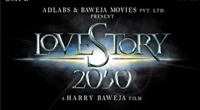
Dayavan Full HD Movie Download
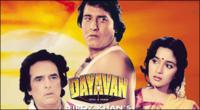
Teen Chor Full HD Movie Download

Apsara Full HD Movie Download
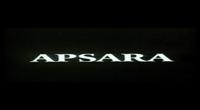
Khandaan (1975) Full HD Movie Download
.jpg)
Mahabali Hanuman Full HD Movie Download
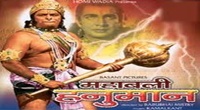
Lal Patthar Full HD Movie Download
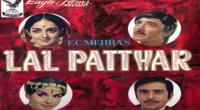
The Hidden Eye- Teesri Aankh Full HD Movie Download

Saugandh Geeta Ki Full HD Movie Download
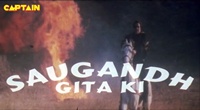
Yaar Ghaddar Full HD Movie Download
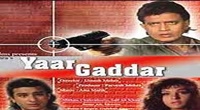
Kshtriya - The Warrior Full HD Movie Download

Rajkumar Full HD Movie Download
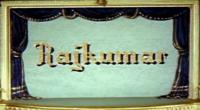
Azaad (1978) Full HD Movie Download
.jpg)
Amalapuram Alludu Full HD Movie Download
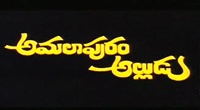
Kadaladu Vadaladu Full HD Movie Download
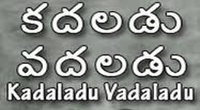
Porkkaalam Full HD Movie Download
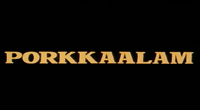
Angakkuri Full HD Movie Download

Shankaravam Full HD Movie Download
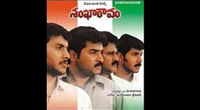
Joshi India Today Full HD Movie Download
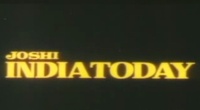
Tiger Harichandraprasad Full HD Movie Download
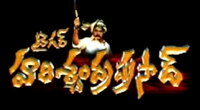
Kalangarai Vilakkam Full HD Movie Download

Download latest Movie from bollywood
- 1> baaghi 3
- 2> THE SKY IS PINK MOVIE FULL STORY AND REVIEW
- 3> Luka Chuppi
- 4> TO ALL THE BOYS I’VE LOVED BEFORE
- 5> Kabir Singh
- 6> Street Dancer 3D
- 7> Simmba
- 8> Gone Girl
- 9> The Girl Who Lived
- 10> Ludo
- 11> DILWALE DULHANIA LE JAYENGE
- 12> GUILTY
- 13> The Godfather
- 14> Adventures of Rusty
- 15> Sooryavanshi
- 16> Satyameva Jayate 2
- 17> Thappad
- 18> Bhool Bhulaiyaa 2
- 19> KGFChapter 2
- 20> Mardaani 2
- 21> Pinjar
- 22> Shivaji maharaj
- 23> Ek Villian 2
- 24> Hungama 2
- 25> Divergent
- 26> Mumbai Saga
- 27> The Internship
- 28> HIT (telugu)
- 29> Panga
- 30> The perfect date
- 31> 16 December
- 32> Gopala Gopala (Telugu)
- 33> Brahmastra
- 34> Gangubai Kathiawadi
- 35> Manmadhudu
- 36> Nenu local
- 37> Mahanati
- 38> Shatamanam bavathi
- 39> Lagaan
- 40> After
- 41> MOM
- 42> Shamshera
- 43> Raguvaran BTech
- 44> Khakee
- 45> The villain
- 46> OM
- 47> Mr. perfect
- 48> Bueatifull mind
- 49> Hichki
- 50> Gabbar Singh
- 51> Jogi
- 52> Before Sunrise
- 53> Before Sunset
- 54> Before Midnight
- 55> The Big Bull
- 56> Top Gun: Maverick
- 57> The Purge
- 58> The Sky is Pink
- 59> Laxmmi Bomb
- 60> Sadak 2
- 61> Sufna
- 62> Prithviraj
- 63> PK
- 64> Coolie No 1(2020)
- 65> Black Widow
- 66> Dear Zindagi
- 67> Dil Bechara
- 68> PHIR HERA PHERI
- 69> WAR
- 70> Dostana
- 71> RRR: Roudram Ranam Rudhiram
- 72> Maidan
- 73> Dabbang 3
- 74> Chhalaang
- 75> life as we know it
- 76> SherShaah
- 77> Sandeep Aur Pinky Faraar
- 78> Event Horizon
- 79> 83
- 80> Radhe: Your Most Wanted Bhai
- 81> Gunjan Saxena: The Kargil Girl
- 82> Mr India
- 83> Vivah
- 84> Anokha Bandhan
- 85> Ghost
- 86> Bhoot: Part One - The Haunted Ship
- 87> Haseen Dilruba
- 88> Laal Singh Chaddha
- 89> Qismat
- 90> Rajput
- 91> Drive
- 92> Dil Chahta Hai
- 93> Dil Ki Baazi
- 94> Dil Ka Rishta
- 95> Teesri Manzil
- 96> Dil
- 97> Love Aaj Kal
- 98> Khaali Peeli
- 99> Bunty Aur Babli 2
- 100> Atrangi Re
- 101> Gulabo Sitabo
- 102> Jodi
- 103> Suraj Pe Mangal Bhari
- 104> Deewana
- 105> Attack
- 106> Sardar Udham Singh
- 107> Toofan
- 108> THE LOVEBIRDS
- 109> Jersey
- 110> Ginny Weds Sunny
- 111> Thalaivi
- 112> Shiddat
- 113> Angels vs Zombies
- 114> Koi Mil Gya
- 115> Thank God
- 116> Bhuj: The Pride of India
- 117> Hum Aapke Hain Kaun
- 118> The Platform
- 119> Bird Box
- 120> Roohi Afzana
- 121> Torbaaz
- 122> Nikamma
- 123> World War Z
- 124> Extraction
- 125> Train to Busan
- 126> Life of Pi
- 127> SHAADI MEIN JROOR AANA
- 128> Himmat Aur Mehnat
- 129> To All The Boys: P.S. I Still Love You
- 130> Mimi
- 131> Good Newwz
- 132> Shubh Mangal Zyada Saavdhan
- 133> Raabta
- 134> Harry Potter and the Philosopher's Stone
- 135> Harry Potter and the Chamber of Secrets
- 136> Chhapaak
- 137> War of the Worlds
- 138> Harry Potter and the Prisoner of Azkaban
- 139> Harry Potter and the Goblet of Fire
- 140> MURDER MYSTERY
- 141> Shakuntala Devi
- 142> Bachchan Pandey
- 143> Jayeshbhai Jordar
- 144> Sheer Qorma
- 145> Saina
- 146> 'O' Pushpa I hate tears
- 147> Kedarnath
- 148> MS Dhoni The Untold Story
- 149> Chhichhore
- 150> Badhaai Ho
- 151> Unstoppable
- 152> Oz the Great And Powerful
- 153> The Girl on the Train
- 154> Haathi Mere Saathi 2020
- 155> The Conjuring: The Devil Made Me Do It
- 156> Gandhi Se Pehle Gandhi
- 157> The Song of Scorpions
- 158> Srimanthudu
- 159> Hello Guru Prema Kosame
- 160> Beauty and The Beast
- 161> Black Panther
- 162> Charlie and the Chocolate Factory
- 163> Bole Chudiyan
- 164> Fidaa
- 165> Duvvada Jagannadham
- 166> Bruce Lee: The Fighter
- 167> Hyper
- 168> Yaara
- 169> Red (2020)
- 170> Shivam
- 171> That Is Mahalakshmi
- 172> Nishabdham
- 173> Aashram 2020 web series
- 174> Laxmii
- 175> Mismatched
- 176> STUDENT OF THE YEAR 2
- 177> NAIL POLISH
- 178> Ramprasad Ki Tehrvi
- 179> KAAGAZ
- 180> 12 o Clock
- 181> The Power
- 182> bolo hau
- 183> Tribhanga
- 184> JAMUN
- 185> Madam Chief Minister
- 186> Maasaab
- 187> Aadhaar
- 188> Tanhaji
- 189> Bhaagi 3
- 190> Bhootnath
- 191> MALANG
- 192> Jai Mummy Di
- 193> Haathi Mere Saathi 2021
- 194> Shakeela
- 195> Unpaused
- 196> Annayya
- 197> Vamsoddharakudu
- 198> Mrugaraju
- 199> Narasimha Naidu
- 200> Sankranti
- 201> Manasu Maata Vinadhu
- 202> Anjaane
- 203> Apaharan
- 204> Bachke Rehna Re Baba
- 205> Bewafaa
- 206> Roohi
- 207> Radhe
- 208> Zindagi Khoobsoorat Hai
- 209> Yeh Mohabbat Hai
- 210> Yeh Kya Ho Raha Hai?
- 211> The Tomorrow War
- 212> DehradunDiary
- 213> Meri Shaadi Karaoo
- 214> Matruu Ki Bijlee Ka Mandola
- 215> No One Killed Jesica
- 216> Aag Ka Goola
- 217> Eight Million Dollars
- 218> Three Hundred
- 219> Cats and Dog
- 220> Decoy
- 221> Gold Rush
- 222> You Have Got Mail
- 223> Final Destination three
- 224> Tofan
- 225> Jungle
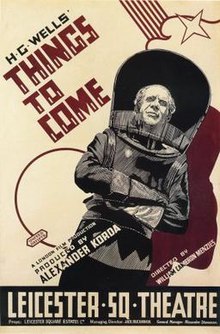 Story of movie Things To Come :
Story of movie Things To Come : 